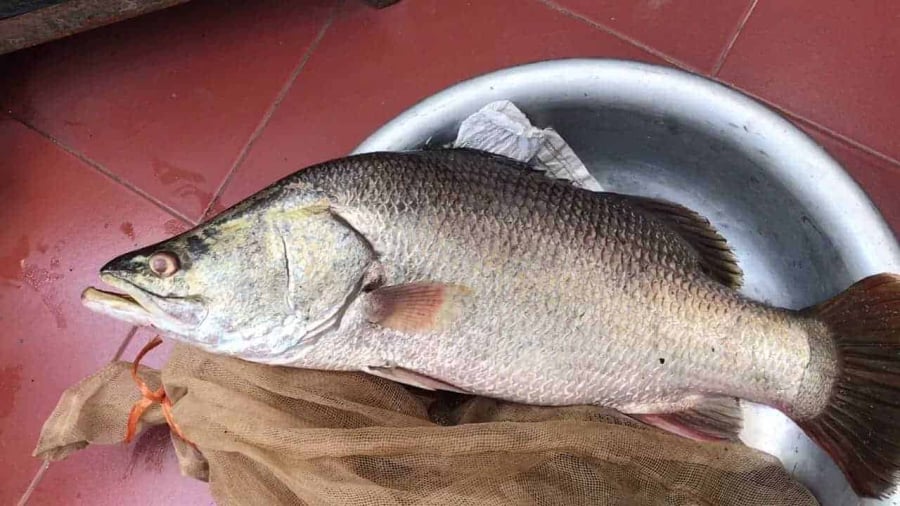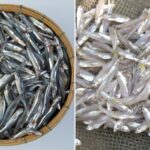Sea bass is a freshwater fish with numerous health benefits, especially for cardiovascular health, and it may even help prevent cancer. It’s widely available in Vietnam at affordable prices.
About Sea Bass
Sea bass, also known as emperor fish or golden swallow, can thrive in various water environments, including freshwater, saltwater, and brackish water. In Vietnam, sea bass is commonly farmed in the brackish waters off the coast of Thua Thien Hue Province and in some freshwater areas of Thai Binh Province.
Research has shown that sea bass is an excellent source of DHA, with levels reaching 238 mg/100 g, and it also contains high levels of EPA (357 mg/100 g). In comparison, Atlantic cod contains 120 mg/100 g of DHA and 64 mg/100 g of EPA. Thus, sea bass offers significantly higher amounts of these beneficial omega-3 fatty acids.

Sea bass, also known as emperor fish or golden swallow, can thrive in various water environments.
EPA and DHA are crucial omega-3 fatty acids that support brain development and function. They also help balance neutral fats in obese individuals or those with high blood fat levels. Additionally, these fatty acids reduce the risk of cancer and cardiovascular diseases due to EPA’s unique “blood-purifying” characteristic.
Sea bass is also an excellent source of protein, with 18.6 g/100 g, which is comparable to the protein content in pork. However, its fat content is only 3.4 g/100 g, just half that of lean pork, which contains 7.9 g of fat per 100 g.
Hence, sea bass is a nutritious option for individuals of all ages, as it provides a rich source of nutrients without the risk of obesity. It has long been recommended for individuals with cardiovascular issues, those trying to lose weight, and people with high blood fat levels.
In addition to protein, sea bass is rich in minerals beneficial to human health, including calcium, magnesium, iron, and zinc. According to published research, 100 g of sea bass contains 138 mg of calcium, which is higher than the amount found in milk (107 mg/100 g). The same amount of sea bass also provides 17 mg of magnesium, 2 mg of iron, 2.83 mg of zinc, and significant levels of phosphorus, selenium, lysine, valine, and niacin.
Furthermore, sea bass contains vitamin A, which is essential for eye health. Consuming foods rich in vitamin A helps prevent age-related eye diseases such as macular degeneration and cataracts.

Sea bass is a nutritious option for individuals of all ages.
Things to Note When Choosing Sea Bass
When selecting sea bass, look for fish with intact bodies, especially with no crushed or damaged areas. The skin and scales should be bright and shiny, as dull and discolored scales can indicate spoilage. Clear, non-cloudy eyes are another sign of freshness. The slime on the body should be transparent, and the fish should not have a strong odor.
Another tip is to check the gills; fresh sea bass will have bright red gills, while spoiled fish will have dark red or brownish gills.





































